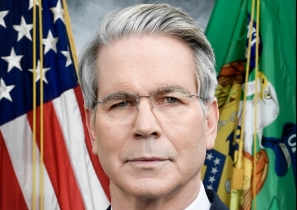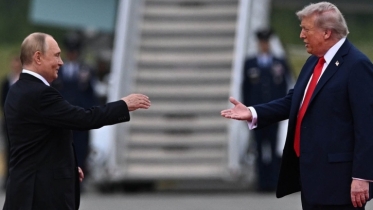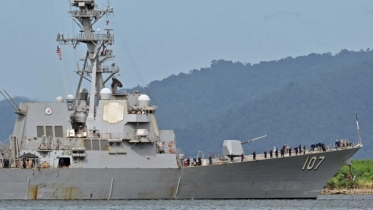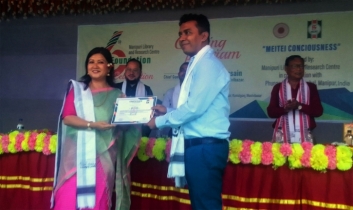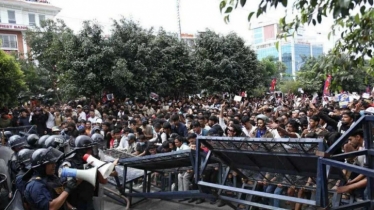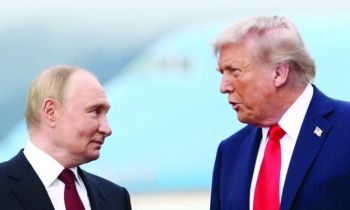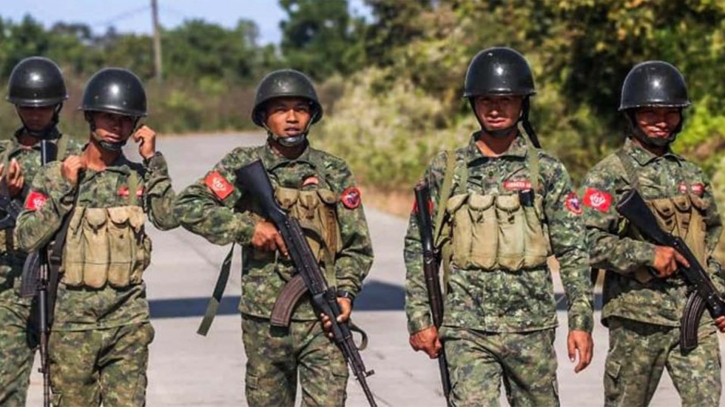
'Time to strengthen relationships with the group, Bangladeshi envoys should emphasize the importance of treating the Rohingya humanely and with dignity,' it says
A global non-profit, non-governmental organization, the International Crisis Group has called on Bangladesh’s interim government to engage with the ethnic Rakhine group Arakan Army as it is carving out a proto-state on the Myanmar-Bangladesh border.
The Arakan Army has seized most of central and northern Rakhine State, on Myanmar’s border with Bangladesh, and seems on the verge of expelling the military, the organization, working to prevent wars and shape policies for a peaceful world, said in a report published on Tuesday.
“Mindful of risks and legal constraints, Bangladesh should increase engagement with the Arakan Army to stabilize borderlands, and donors should explore ways to expand humanitarian operations throughout Rakhine State,” it said.
Bangladesh has given shelter to over a million Rohingya Muslim population who fled ethnic cleansing in the Rakhine State.
Both sides were in talks for the return of the Rohingyas from Cox’s Bazar, but the situation became volatile in late 2023 following conflict between the Arakan Army and the Myanmar military.
“Although the Myanmar military has countered with indiscriminate attacks and a blockade that is causing huge economic distress, the armed group, which draws support mainly from the state’s Rakhine Buddhist majority, has pushed on, reaching into northern townships where it is alleged to have attacked Muslim Rohingya civilians,” the International Crisis Group said.
“Desperate to retain these areas and control of the border, the military has conscripted and collaborated with Rohingya and orchestrated the destruction of Rakhine homes.
“When the dust settles, the Arakan Army will likely emerge as Rakhine State’s de facto governing authority, and outside actors will have to decide how and whether to engage with it.
“To foster stability, the Arakan Army should mend relations with the Rohingya, support an independent investigation of alleged abuses, and reach out to Dhaka and donors, which should find ways to work with the group on shared humanitarian and security objectives.”
Role of Bangladesh
For all the challenges it is facing domestically, the International Crisis Group said, Bangladesh also has a key role in Rakhine State, as do other outside actors.
It continued: “The emergence on its border of a de facto statelet that aspires to permanent autonomy will require the new interim government in Dhaka to expand the scope of its engagement with the Arakan Army, whatever its views of those ambitions.
“While strengthening ties with the group, Bangladeshi envoys should emphasize the importance of treating the Rohingya humanely and with dignity. To stabilize the borderlands and address drivers of irregular migration, Dhaka should also allow for more humanitarian aid to the area and trade across the frontier.”
Finally, Dhaka should improve security in the refugee camps, reduce the influence of armed groups there and allow a genuine Rohingya civil society movement to emerge, it added.
“Other foreign governments should explore how they can work with the Arakan Army and neighbouring states to improve humanitarian access and expand assistance for all ethnic communities affected by conflict in central and northern Rakhine State.
“For neighbouring states and other outside actors, the emerging situation in Rakhine State creates quandaries – not least the question of how to work with a de facto authority like the Arakan Army amid an international system that for legal and practical reasons privileges relationships with nation-states.
"Despite these dilemmas, as Crisis Group has noted elsewhere, neighbours and donors will likely find that the greatest potential for positive humanitarian and security impact lies in working with Rakhine State’s de facto administrators toward mutual goals – mindful of human rights, conflict and legal risks and constraints that may present themselves.”
Challenges for Arakan Army
The organization said: “While the Arakan Army is likely to complete its rout of the military, it is less clear whether its political wing, the United League of Arakan, has the resources and capability to govern the territory and people who come under its rule, much less bring stability to the region.
“Strong support among the majority Rakhine will buy the group time to address difficult living conditions – including the lack of electricity and internet, the loss of essential services and an economy destroyed by conflict – but it is uncertain how long the public’s resilience will last.”
“The Arakan Army faces serious challenges in realizing its vision for an autonomous state. Rakhine boasts few easily exploited natural resources and has poor trade and transport connections with neighbouring Bangladesh and nearby India, which have been less amenable to engaging with Myanmar’s ethnic armed groups than China or Thailand,” the group added.
As a result, it said, the state is heavily reliant on regime-controlled central Myanmar for essential goods and almost entirely dependent on Naypyidaw for electricity, communications and banking services.
“At the same time, both China and India are seeking influence in Rakhine for geostrategic reasons, while Bangladesh wants to see the speedy return of up to 1 million Rohingya refugees. Navigating this complex environment will be no small task for the armed group.
“The Arakan Army is also struggling to manage difficult ethnic relations within Rakhine, a state that since 1942 has been wracked by recurrent outbreaks of communal violence between the majority Rakhine, who are mainly Buddhist, and the Muslim Rohingya, who are a minority at the state level but dominate northern Rakhine.
“The Arakan Army now faces a stiff test. Having made major battlefield gains over the Myanmar military, it needs to show it can bring stability to a neglected corner of the country and govern in the interests of all the people living there.”

